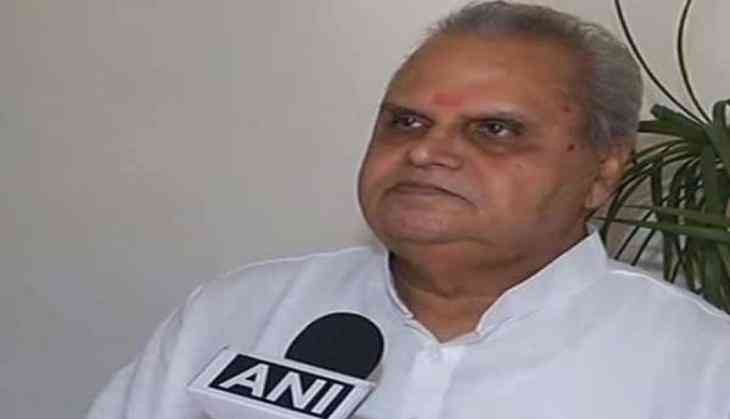
In a move which was frowned upon by the regional political parties in Jammu and Kashmir, Governor Satya Pal Malik has amended the Jammu and Kashmir Municipal Ombudsman Act, 2000, arguably diluting the eligibility criteria for the post of ombudsman.
According to the amended Act, an official of the rank of Commissioner Secretary will also be eligible for appointment as Ombudsman, whereas earlier, only a judge of a high court or a person eligible to be appointed as judge of high court could have been appointed as an Ombudsman to examine issues of corruption by municipal bodies.
Furthermore, the amendment also specifies that the governor would appoint a person to the office on the recommendation of a committee comprising of advisors to the governor and the chief secretary. The earlier version of the act had mandated the governor to make the appointment acting on the advice of the chief minister of the state after consultations with the Speaker of Legislative Assembly, Chairman of Legislative Council and Leader Of Opposition.
The governor has also amended the Jammu and Kashmir Protection of Human Rights Act, 1997, allowing government to take three months, instead of one month time to respond to the State Human Rights Commission (SHRC) recommendation on rights violations. Following the amendment, the SHRC also can't inquire into matters of human rights violations which are older than one year.
“The Commission shall not inquire into any matter after the expiry of one year from the date on which the act constituting violation of human rights is alleged to have been committed; provided that provision of this subsection shall not apply to inquiries pending before the Commission on 28-11-2018,” the amendment reads.
Justifying the changes, Law Secretary, Achal Sethi, said that the amendment in the state’s human rights act has been made in “accordance with the provisions in the central act.” “We have done two amendments in Human Rights Act. One is to increase the response time period, and we have specified that in new complaints of human rights only those would be entertained in which the cause of action is within one year. There is a similar provision in the central act under which the National Human Rights Commission functions.”
He said that the government had to amend the Ombudsman Act as a new committee was to be constituted to make the appointment after the dissolution of Assembly.
The amendments in the Acts have come only a few days after Malik introduced a new law to constitute a separate "security force" for providing security to him as well as his family members. Under the Jammu and Kashmir Governor’s Special Security Force Act, 2018, the “command and supervision of the force shall vest in the Director of the force” who shall also be “assigned such number of Joint Directors, Deputy Directors, Assistant Directors and other officers as may be appointed by the government with the prior concurrence of the governor."
The move drew sharp reaction from political parties which said that Malik was using legislative powers to take decisions even in matters which should have been left for the elected governments to decide on. The parties rued that the governor’s rule is a transitory arrangement only meant to uphold basic functioning of the state machinery till an elected government takes over. In such a scenario, the
National Conference provincial president, Nasir Aslam Wani, said, “Proprietary doesn’t demand that Governor should be going for spree of ordinances. As many as 35 new bills have been approved through an ordinance route, which should have been left to the wisdom of the next elected government.” He added, “ Governor should have had an idea that his tenure has only got extended after the President’s rule.”
Human rights activist, Mohammad Ahsan Untoo, said that the Governor has amended the Human Rights Act to curtail the powers of SHRC. “ The government has come under fire from different human rights groups in last two years, at the international level, for the repeated rights violations in Kashmir due to which they now want to curtail the work of the SHRC.” He said that “while the government’s response to the recommendations of the Commission earlier was poor, they now got officially the permission to delay the implementation.”


.jpeg)

